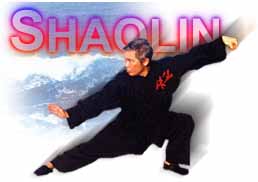Having a good master is definitely a tremendous blessing in kungfu,
taijiquan and qigong training. As mediocre instructors are so common
nowadays -- some even start to teach after having attended only a
few week-end seminars -- finding a great master is like finding a
gem in a hay stack. Here are some guidelines to help you find one.
An
Example of What He Teaches
A good
master must be a living example of what he teaches. A kungfu master
must be able to defend himself, a taijiquan master must have some
internal force, and a qigong master must exhibit radiant health, as
these are the basic qualities these arts are meant to develop.
A master
of kungfu, taijiquan or qigong does not enjoy the luxury of many coaches
in modern sports like football and athletics who often cannot dribble
a ball or run a race half as well as the students they teach. They
are also some kungfu, taijiquan or qigong instructors today who cannot
perform half as well as their average students, but they are certainly
not masters, although as a form of courtesy they may be addressed
as such by their students or the general public.
Understanding
Dimension and Depth
Besides
being skillful, a good master should preferably be knowledgeable.
He should have a sound understanding of the dimension and depth of
the art he is teaching, and be able to answer basic questions his
students may have concerning the what, why and how of their practice.
Without this knowledge, a master will be limited in helping his students
to derive the greatest potential benefits in their training.
However,
especially in the East, some masters may be very skillful but may
not be knowledgeable. This is acceptable if we take the term 'master'
to mean someone who has attained a very high level in his art, but
who may not be a teacher.
The reverse
is unacceptable, i.e. someone who is very knowledgeable but not skillful,
a situation quite common in the West. A person may have read a lot
about kungfu, taijiquan or qigong, and have written a few books on
it, but has little kungfu, taijiquan or qigong skills. We may call
him a scholar but certainly not a master.
Systematic
and Generous
The third
quality of a master as a good teacher is that he must be both systematic
and generous in his teaching. Someone who is very skillful and knowledgeable,
but teaches haphazardly or withholds much of his advance art, is an
expert or scholar but not a good master.
On the
other hand, it is significant to note that a good master teaches according
to the needs and attainment of his students. If his students have
not attained the required standard, he would not teach them beyond
their ability (although secretly he might long to), for doing so is
usually not to the students' best interest. In such a situation he
may often be mistaken as withholding secrets.
Radiates
Inspiration
The fourth
quality, a quality that transforms a good master into a great master,
is that he radiates inspiration. It is a joy to learn from a great
master even though his training is tough.
He makes
complicated concepts easy to understand, implicitly provides assurance
that should anything goes wrong he is able and ready to rectify it,
and spurs his students to do their best, even beyond the level that
he himself has attained.
High
Moral Values
The most
important quality of a great master is that he teaches and exhibits
in his daily living high moral values. Hence, the best world fighter
who brutally wounds his opponents, or the best teacher of any art
who does not practise what he preaches, cannot qualify to be called
a great master.
A great
master is tolerant, compassionate, courageous, righteous and shows
a great love and respect for life. Great masters are understandably
rare; they are more than worth their weight in gold.

